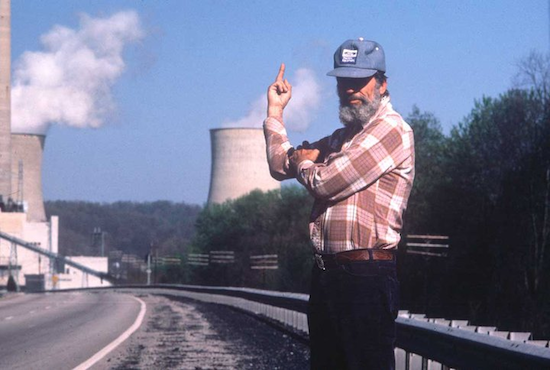Bad Advice Wednesday: Let Politics In
categories: Bad Advice / Cocktail Hour
2 comments
 I don’t mean editorialize.
I don’t mean editorialize.
I don’t mean sound like you are on Fox or MSNBC.
I mean don’t erect a wall that separates the political from the rest of your writerly world. I mean don’t think that just because it is the current fashion to think that “literary writing” should be kept clean and separate from political writing doesn’t mean it should be.
As those of you who read this blog regularly know, I am working on a book about Wallace Stegner and Edward Abbey. One of the pleasures of studying the work of these two men is that even
during the ‘70s, when plotlessness and meta-fiction, not to mention the rise of truck driver fiction, ran amok, the work of both Stegner and Abbey was political in the best and broadest sense of the word. While Stegner’s political thinking was more sophisticated and restrained, Abbey’s words had a rare attribute: they made people act. Monkeywrenching, or environmental sabotage, has now been lumped together with terrorism, but Abbey could make it seem glorious. After finishing a chapter or two, readers would want to join his band of merry men, fighting the despoiling of the West by cutting down billboards and pulling up surveyor’s stakes and pouring sugar in the gas tanks of bulldozers, all of this providing a rare example of true literary influence at work.
“Mr. Abbey writes as a man who has taken a stand,” was how Wendell Berry put it in his essay, “A Few Words in Defense of Ed Abbey.”
This stand of Abbey’s was both instinctive and the result of a thought-out philosophy. “It is my belief that the writer, the free-lance author, should be and must be a critic of the society in which he lives,” is how Abbey begins “A Writer’s Credo.”
He continues:
“Am I saying that the writer should be—I hesitate before the horror of it—political? Yes sir, I am…..By ‘political’ I mean involvement, responsibility, commitment: the writer’s duty to speak the truth—especially unpopular truth. Especially truth that offends the powerful, the rich, the well-established, the traditional, the mythic, the sentimental.”
Speaking the truth was how the fight started. It was an author’s first duty. But it didn’t end there. On one level Abbey was your grumpy uncle who wrote constant letters to the editor. But he went further than your uncle: he wrote his letters, sure, but then he went ahead and did things, pulling up surveyors’ stakes, dumping sugar in the gas tanks of bulldozers, cutting down billboards, and perhaps even blowing up a thing or two up.
Docile as we have become, we gasp at the idea of taking actual action. Especially with the NSA looking on. But it is possible, still, to do things that matter, and it is possible to mix the literary and the political. It has been done before, and done well, and can be done again. Perhaps even by you.
I will end with these words of Abbey’s:
“A literary career should not be a career but a passion. A life. Fueled in equal parts by anger and love. How feel one without the other? Each implies the other.”


This is great picture of ed abbey, when/where was it taken? do you know?
And don’t forget the writer who I would argue is the godfather of this approach to writing. In “Why I Write,” George Orwell described his purpose this way: “Desire to push the world in a certain direction, to alter other people’s idea of the kind of society that they should strive after.” And: “When I sit down to write a book, I do not say to myself, ‘I am going to produce a work of art.’ I write it because there is some lie that I want to expose, some fact to which I want to draw attention, and my initial concern is to get a hearing.”
And then, like Abbey, he went out and did stuff. Fought in the Spanish Civil War, went down into the coal mines, picked hops with itinerant workers, etc. The kind of immersive journalism that is so popular today (i.e., Nickel and Dimed), and that seeks to bring about political change, owes a huge debt to Orwell.